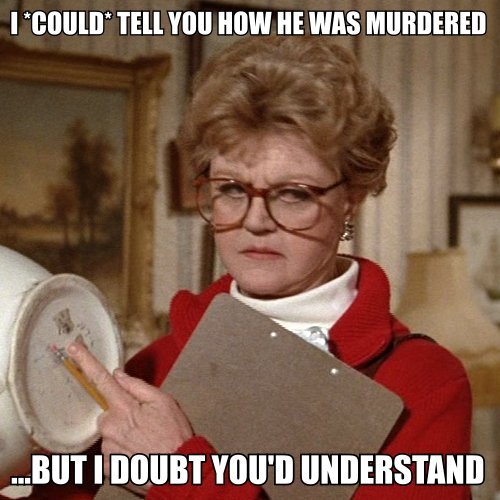I recently played BioShock, and ever since, it's all I can think about. Never before have I experienced a game that sucked me in quite like it did, and never before have I loved spending all my time doing just one thing more. I'd like to work through my BioShock experience in order to analyze what makes it so special, and there will be spoilers, so consider yourself warned.
I know I'm late to the game, but I was hesitant to play BioShock because it looked scary. All I'd ever seen were the Little Sisters, and I don't care who you are, those girls are creepy.
See my point?
But I listened to the Nerdist podcast featuring Ken Levine, the creative director of the BioShock enterprise, and was blown away by what he had to say about story. I stopped listening about 20 minutes in so I could stem the tide of spoilers I was hearing about
Infinite, and decided to start from the beginning.
I knew nothing about BioShock's gameplay, and was disappointed when I discovered it was a first-person shooter. I suck at first-person shooters. Luckily for me, easy mode is quite forgiving, and the mechanics didn't get in the way of my enjoyment of the experience. In fact, I think the full immersion that the first-person perspective provides helps make the game as exciting as it is. Everything is scarier when it's running at you rather than some guy, and having to manipulate the camera almost constantly in order to see everything around me kept me active and engaged during every moment of play.
Part of the reason I love BioShock as much as I do is because the game rewards you for engaging with your environment. Sure, you could move through the game fairly quickly without exploring much, especially on easy mode, but you would miss most of the story.
The joy of BioShock comes from taking an active role in discovering the story. You start with no knowledge of the world you are in or yourself, but discover it in bits and pieces along the way through radio transmissions with Atlas, one of the survivors in the city, and by finding audio logs, voice recordings left scattered through Rapture by its residents that act much like journals. Because these audio logs are scattered and somewhat hidden throughout the city, you have control over how much story you receive.
The audio logs are usually in rooms that aren't involved with the main story line, so I quickly developed the habit of looking at which way the plot arrow was pointing on screen, and heading off in the complete opposite direction. This gave me more time in the world of Rapture, and exposed me to many details I would have otherwise missed.
The audio logs also kept the game from feelings stale, because they offered so many different viewpoints on Rapture and the events that went on there, and gave characters who wouldn't have otherwise existed a voice. It was fascinating to me to see what each person chose to focus on in the chaos of Rapture's demise, and how this focus would change in different parts of the city.
In addition to the audio logs, I think what makes BioShock's story so special is the deliciously meta twist when you discover you are playing a brain-washed pawn in the Ryan/Fontaine drama. The reveal that Ryan is your father and he turned you into an unthinking slave as a child is disturbing, unexpected, and makes perfect sense once it is out in the open. Of course Atlas, who is really Fontaine, has been controlling you the entire time! Why else would you be there, killing Ryan? Everything you've done to that point has been part of some grand scheme you have no control of.
This reveal calls into question the nature of gaming, of life, and of the nature of humanity itself. It may just be me, but the "a man chooses, a slave obeys" point that Ryan makes hit me deeply. My mind can't stop turning the concept over and over, applying it to my life, and to everything I do. That's the mark of a great story. And I don't think the message would have been as powerful in any other medium, or if the story had been told in any other way.









